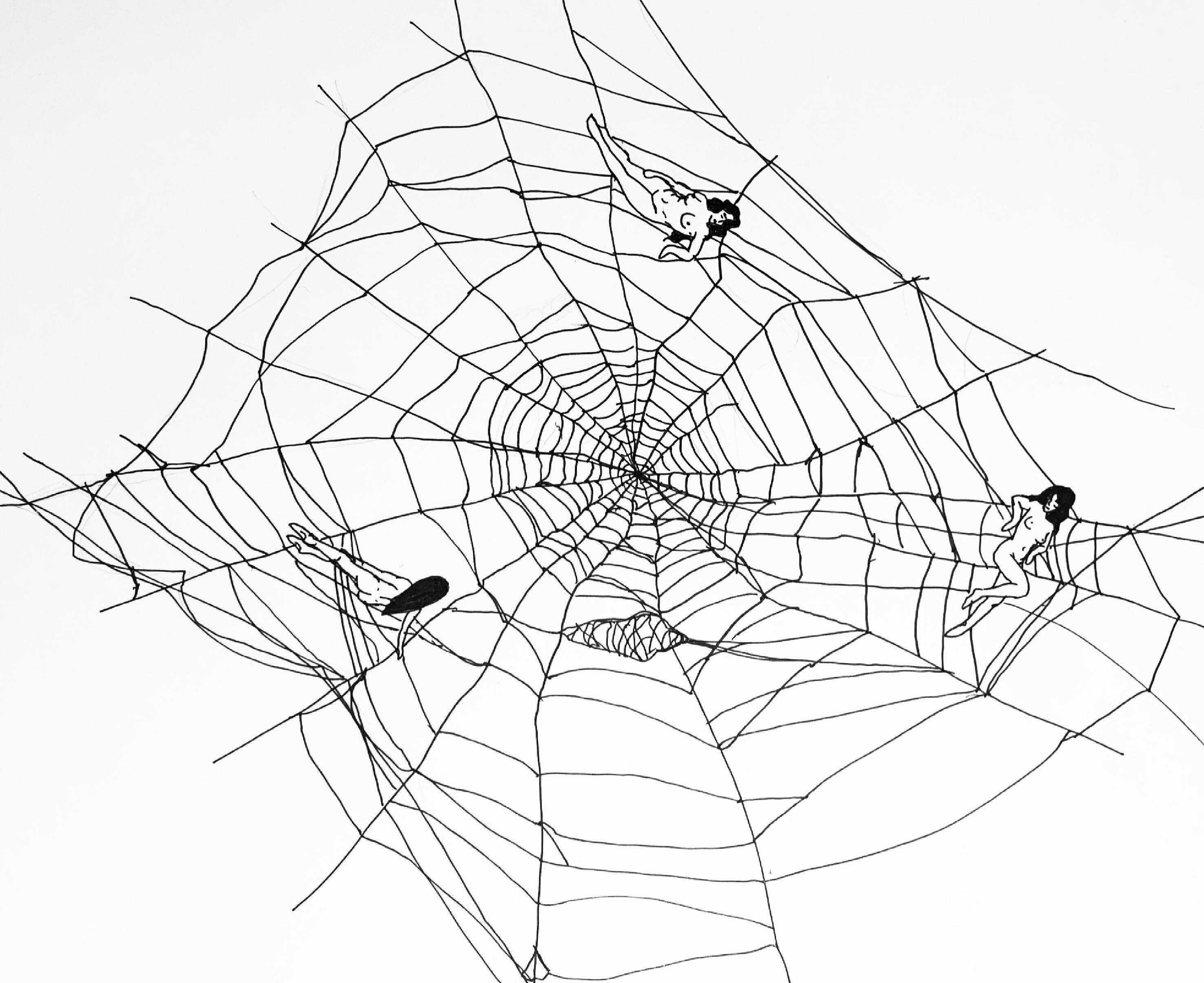
4 minute read
The Need to be Busy
The Space I Take Up
WRITTEN BY EMMA NAYFIE
Advertisement
I’m 11 years old when I realise that I take up too much space. Mum takes me straight from school to buy an outfit for my impending Confirmation at St Mary’s Catholic Church. One of eight girls in the church group, I’m the only one that hasn’t been able to find a pretty dress to fit my large frame. For me, a young girl with heavy breasts that developed far ahead of their time and hips that demanded sizes from the women’s section in department stores, I have slim chances of finding anything that didn’t resemble either a grown woman’s bridal gown or a large, sequined garbage bag.
In mid-1990s Bundaberg, formal fashion item choices in my size outside of the bridal boutique are limited to the polyester-filled racks at Millers Fashion. I flatly refuse to try anything from these ‘old people shops’, so I watch my mother dive into the back of clothing racks at Target, trying to reach an elusive size 16 dress. We don’t find one.
I leave that day with a dark grey, floor length polyester skirt and a modest, long-sleeved black top. I hate it, and in all the photos that day I make sure my mouth twists in a sad scowl so that everyone knows it. Mum tells me not to worry - the outfit makes me look slimmer. That’s what matters is unspoken, but it sits heavily in the air between us.
When I’m 16, I realise I’m ugly. I’m washing my hands in the bathroom of my friend Carly’s house. She’s throwing a party; there are boys from school here, Nirvana songs on repeat, and warm bodies that stop just short of touching. It’s 1997 and I’ve perfected the art of deflecting attention from my bulky frame by wearing an oversized Smashing Pumpkins t-shirt, baggy jeans, silver Doc Martens, black nail polish and box-dyed black hair. A strong I totally don’t care what you think vibe.
I hear Carly’s voice through the wall between us – she’s in her room doing her makeup with our friend Taylor, who’s got a similarly large body to my own. You might be fat Tay, but you can change that, she says matter-of-factly. At least you’re not ugly like Emma. You can’t change ugly.
I see myself reflected in the mirror above the sink, but there’s something new there now, a crookedness in my nose, one eye slightly bigger than the other, blotchy freckles in a sunburst across my forehead. I poke at the new geometry of my face, and it fills me with shame. Not only do I take more than my fair share of space in this world, I’ve tarnished that space with this asymmetry, with these blemishes. It takes me another 16 years before I question my place in this world.
At 32, I have a seven year old daughter who slips into the bathroom while I’m drying myself from
the shower. She examines herself in the mirror, frowning. What are you so grumpy about? I ask. I’m not very pretty, she tells me, and it feels like a slap across my face.
When I ask why she thinks she’s not pretty, she tells me that she’s fat, her arms are too big, her stomach too soft. I could summon a multitude of platitudes in response, but all I can manage is to pull her close and hug her tightly.
So many of us spend our lives feeling not beautiful, just shy of pretty. There are unwritten rules on the space we hold in this world, and our culture demands payment from anyone that fails to conform to the elusive optimum standards of size and beauty, regardless of how fickle and shifting these standards are.
I am angry; at the world, for starting to shape my daughter in its image, at myself for all those times I’d criticised my own body with my daughter in earshot. For criticising myself at all. I know this has to be the moment things change.
I start by throwing away the magazines I’ve collected over the years; hundreds of pages of diets that promise to help me burn belly fat, products to help transform my skin, burst my capillaries into smoothness, laser away soft edges and suck flesh from the stubborn pockets of my thighs; so many ways to erase all the colours of ourselves that have bled outside the lines of a bland, uniform ideal of a woman.
I find an online community of women who are rejecting this pressure to conform. They call themselves “fat acceptance activists” and their bible is a book called Health at Every Size by Lindo Bacon, PhD. “Once you consider the extent of the magical thinking that tends to be tied in to the fantasy of thinness,” he says, “you can understand how threatening it is to consider the idea that you may never get the thin body you crave. It means that you never get to become the person you want to be.” His words stick to the walls of my heart.
I read Naomi Wolf’s The Beauty Myth. She tells me that “a cultural fixation on female thinness is not an obsession about female beauty but an obsession about female obedience” and once








